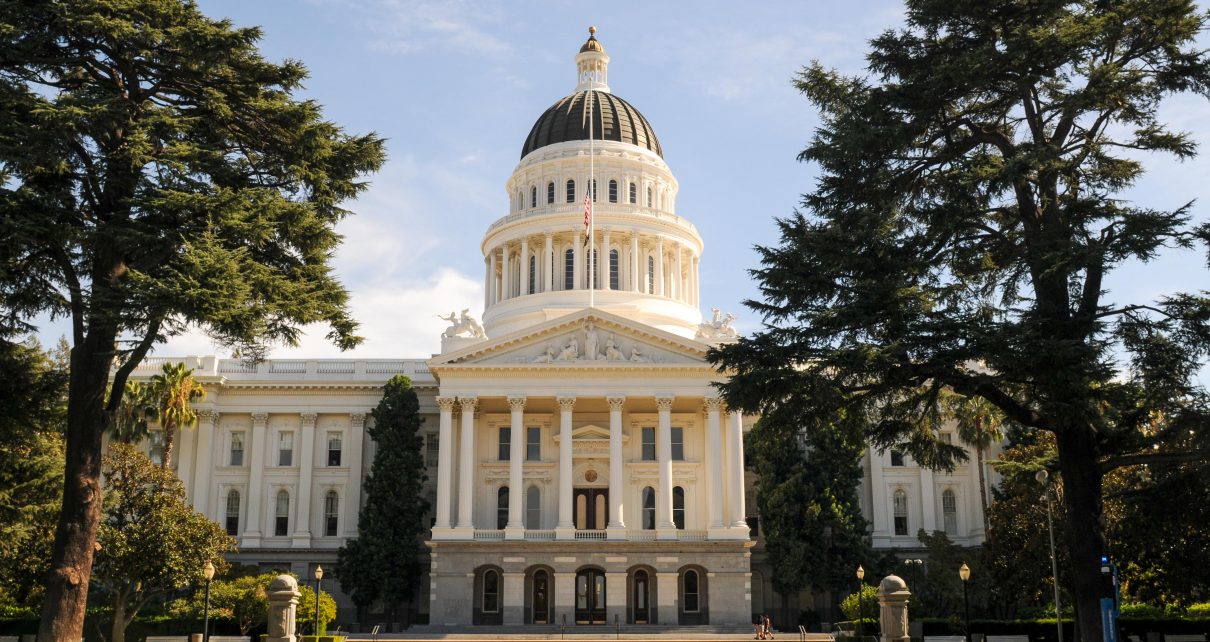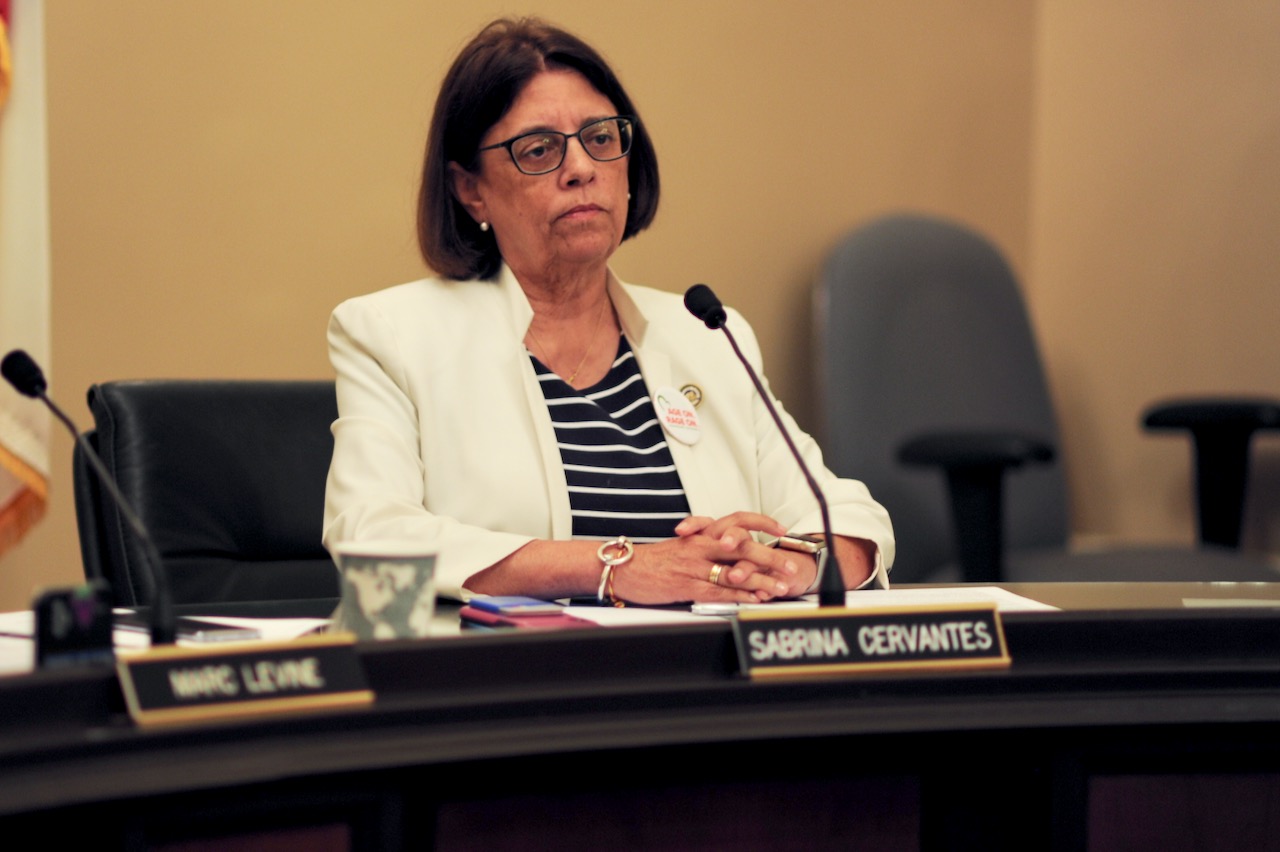
California State Capitol. (Photo: Kevin Sanders for California Globe)
Union Leaders, Newsom Advisors at Odds Over Bill Requiring Driver in Driverless Trucks
‘There are still many very legitimate issues to not want self-driving trucks’
By Evan Symon, September 20, 2023 2:30 am
An unusual combination of union leaders and lawmakers from both parties and advisors for Governor Gavin Newsom were found to be at odds over signing a bill that would require driverless trucks to have a driver in the vehicle this week, with Newsom himself continuing to get pressure from both sides to either sign or veto the bill by October.
Assembly Bill 316, authored by Assemblywoman Cecilia Aguilar-Curry (D-Winters) would prohibit the operation of an autonomous vehicle with a gross vehicle weight of 10,000 pounds or more on public roads for testing purposes, transporting goods, or transporting passengers without a human safety operator physically present in the autonomous vehicle at the time of operation.
While AB 316 was authored by Assemblywoman Aguilar-Curry, it was introduced with a bipartisan group of legislators, including Assemblymen Tom Lackey (R-Palmdale) and Ash Kalra (D-San Jose). Both parties have also had a few members each oppose the legislation throughout the year, leading to strange non-party coalitions. Democrats have largely been in favor of the bill because due to alleged safety benefits of the bill as well as massive support of the bill coming from unions such as the Teamsters. Republicans, meanwhile, have been mostly for AB 316 because of many rural areas wanting to keep trucking jobs.
“Lawmakers aren’t against technology, but we see the bill as a safer way for companies to test self-driving trucks,” said Lackey. “We want balance because we believe in people, and we believe in public safety. When surprises happen, physics is not your friend.”
However, the bill also saw increased opposition come from within Newsom’s office. The Department of Finance came out against AB 316 over the cost to the state of $1 million yearly to operate it. Transportation officials have said that regulations should be up to the California Department of Motor Vehicles. Safety advisors said that self-driving cars were not causing many accidents. And, perhaps most critically, the Office of Business and Economic Development said that the state would be hurt economically, with driverless vehicle makers being more inclined to move out of state to develop and test new technology.
“Our state is on the cusp of a new era and cannot risk stifling innovation,” said Office of Business and Economic Development Director Dee Dee Myers earlier this year.
Despite the opposition, lawmakers adored the bill and steadily moved it up through the legislature this year. AB 316 passed the final Assembly vote in June, coming to 69-4 with 7 abstentions. Support only increased in the Senate, where it passed last week 36-2 with 2 abstentions.
AB 316 up for Newsom to sign, veto
With Newsom not giving any indication on which way he would vote, union rallies in support of the bill were held in Sacramento, with both Democrats and Republicans in attendance. Unions such as the Teamsters also made it clear that massive job loss was on the table if Newsom decided to veto the bill.
“During the pandemic, Gov. Newsom thanked Teamster truck drivers for risking their lives to keep the economy afloat. But he actually needs to prove that he cares about workers by signing AB 316,” said Teamsters General President Sean M. O’Brien. “If Gov. Newsom vetoes this bill, he is putting the livelihoods of hundreds of thousands of truck drivers at risk, while jeopardizing public safety. The Teamsters rightfully stand against such dangerous technology. We will fight to make sure AB 316 becomes law.”
Supporters of the bill also blasted away many of the arguments of Newsom’s advisors, such as how autonomous cars were safe. Specifically, they pointed to the high number of autonomous car accidents in San Francisco caused by robotaxis. The situation in the city has gotten to be such a problem that one company operating autonomous cars, Drive, recently slashed the number of robotaxis in the city by half. New concerns have also come out in recent weeks as well, such as one questioning if automated trucks could safely bring things like hazardous materials somewhere without incident.
“It’s quickly being seen as more and more of a gamble,” said labor consultant Jeanne Rogers to the Globe on Tuesday. “This is still a very new technology. Newsom’s advisors are worried about a few companies moving out of state possibly. But what is that against hundreds of thousands of trucking jobs? What is that against more injuries and deaths? Plus, there is no guarantee they would leave. They said a million per year for upkeep, and for California, that’s nothing.”
“There are still many very legitimate issues to not want self-driving trucks, and Newsom needs to understand that. You can always give tax breaks or other considerations for companies to stay. You can’t do the same to save hundreds and thousands of trucking jobs.”
Newsom is set to decide on the bill by October 14th.
- Bill to Require Law Enforcement Disclosure if AI Was Used To Help Write Reports - August 7, 2025
- Gov. Newsom Files FOIA Request To ‘Expose True Cost’ Of L.A. Federal Troop Deployment for Anti-ICE Riots - August 6, 2025
- California Redistricting: How Newsom’s Plan Will Demolish Hard Fought GOP Gains - August 6, 2025






For once I agree. But for other reasons besides fatal softwear glitches sending 40 tons careening into you face.
For a lot of people truck driving is the best job they will ever have.